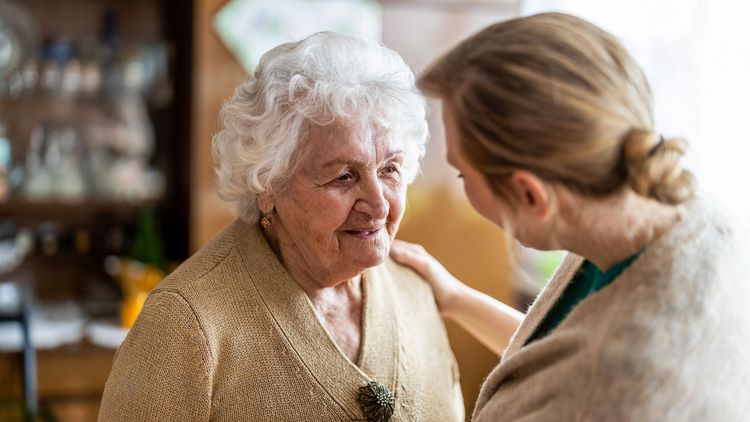When a person with dementia can no longer care for themselves, their relatives sometimes choose to hire a live-in caregiver to provide round-the-clock care in the patient's home. The resulting triangular relationship between patient, carer and relatives or family members can lead to moral conflicts. Researchers from Oldenburg University's medical school and Israel's Bar Ilan University are conducting a joint study to identify and gain a better understanding of these moral conflicts.
On the basis of their results they will formulate ethical recommendations for policymakers and everyone involved in such a situation. The Volkswagen Foundation is providing 300,000 euros for the two-year project through its funding programme Niedersächsisches Vorab: Research Cooperation Lower Saxony – Israel.
An estimated 500,000 households in Germany use the services of live-in caregivers. Many of these carers come from Eastern Europe and the employment relationship is often not registered with the authorities. The carers often stay for only a few weeks before returning to their home country. The legal framework for such constellations is very unclear in Germany. "In this fragile relationship between the caregiver, the person with dementia, and the relatives, everyone is equally dependent on each other," says Dr Merle Weßel, director of the project and a medical ethicist at the University of Oldenburg's Department of Health Services Research. Language barriers, conflicting expectations, feelings of guilt, unclear arrangements regarding tasks, cultural differences – all these factors can quickly lead to problems in everyday life, she explains. These conflicts are the focus of the project.
Researchers are interviewing families in Germany and Israel
The researchers are interviewing families in both Germany and Israel to learn about how everyday matters are arranged with the carer. Who makes the decisions? What are people's ideas regarding quality care for dementia patients? How are agreements negotiated? What conflicts arise?
On the German side, in addition to Weßel the team includes medical ethicist Prof. Mark Schweda and health scientist Dr. Milena von Kutzleben from the university's Department of Health Services Research. On the Israeli side, the renowned psychologist and elderly care researcher Prof. Liat Ayalon is involved. The comparison between Germany and Israel in this particular area of health research is especially interesting because the model of caregivers from abroad providing live-in care for people with dementia is also well established there. In Israel, however, the legal framework and the family structures are very different from those in Germany.



